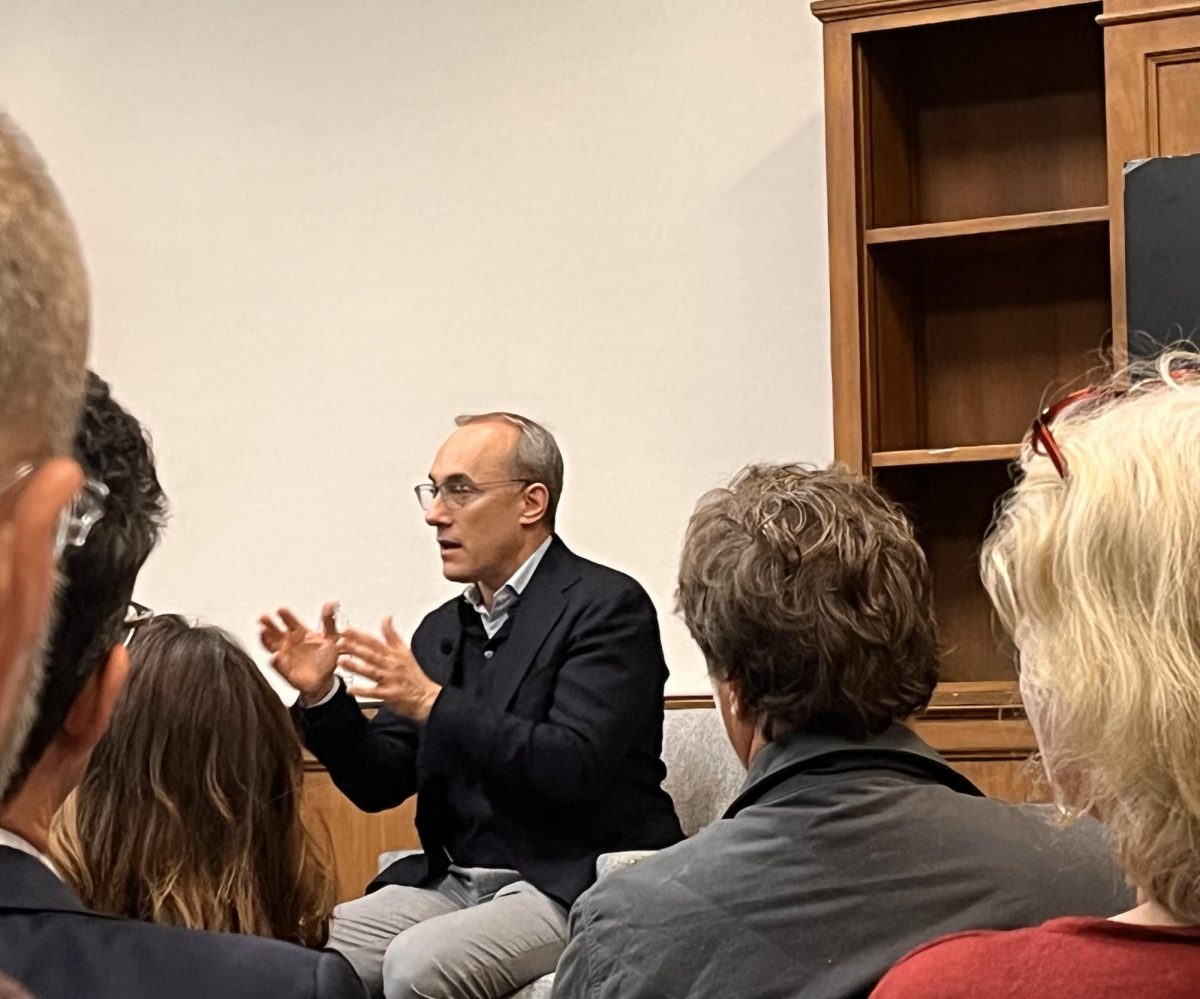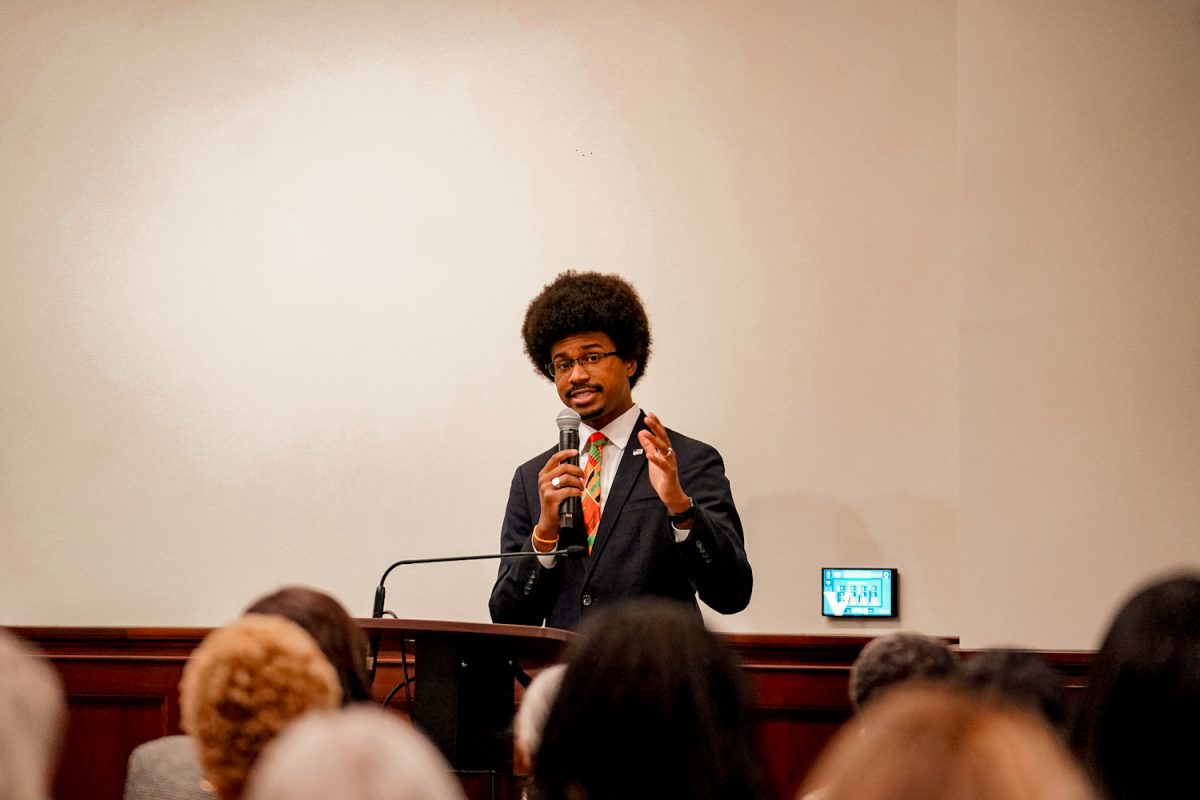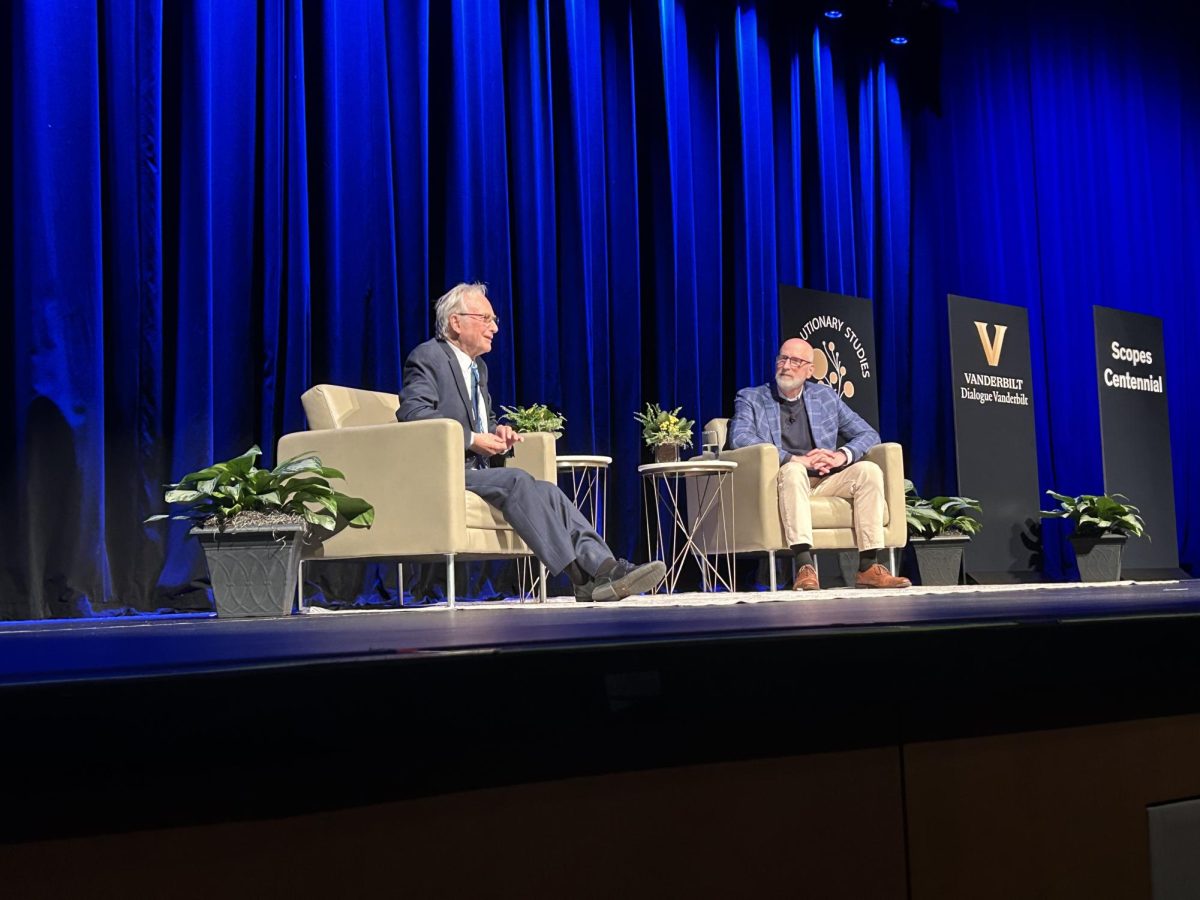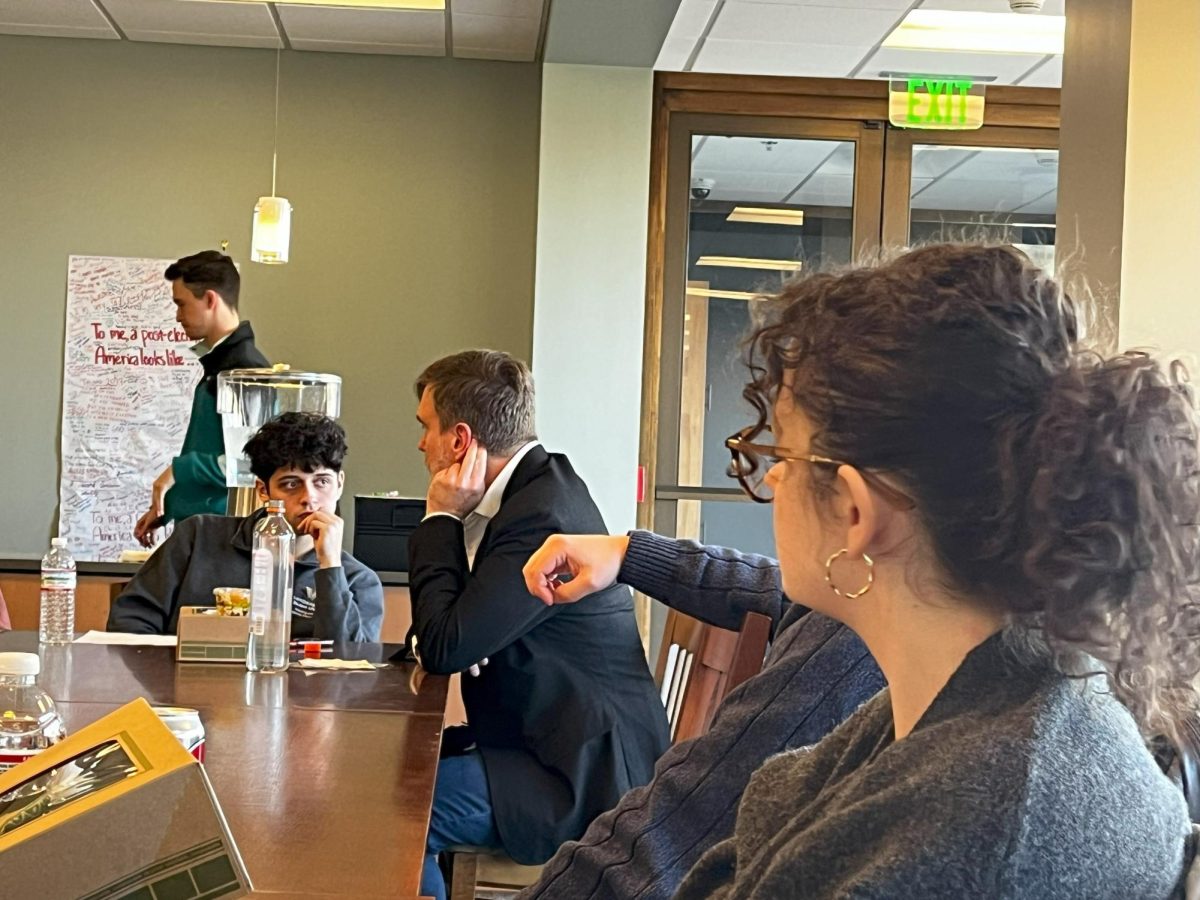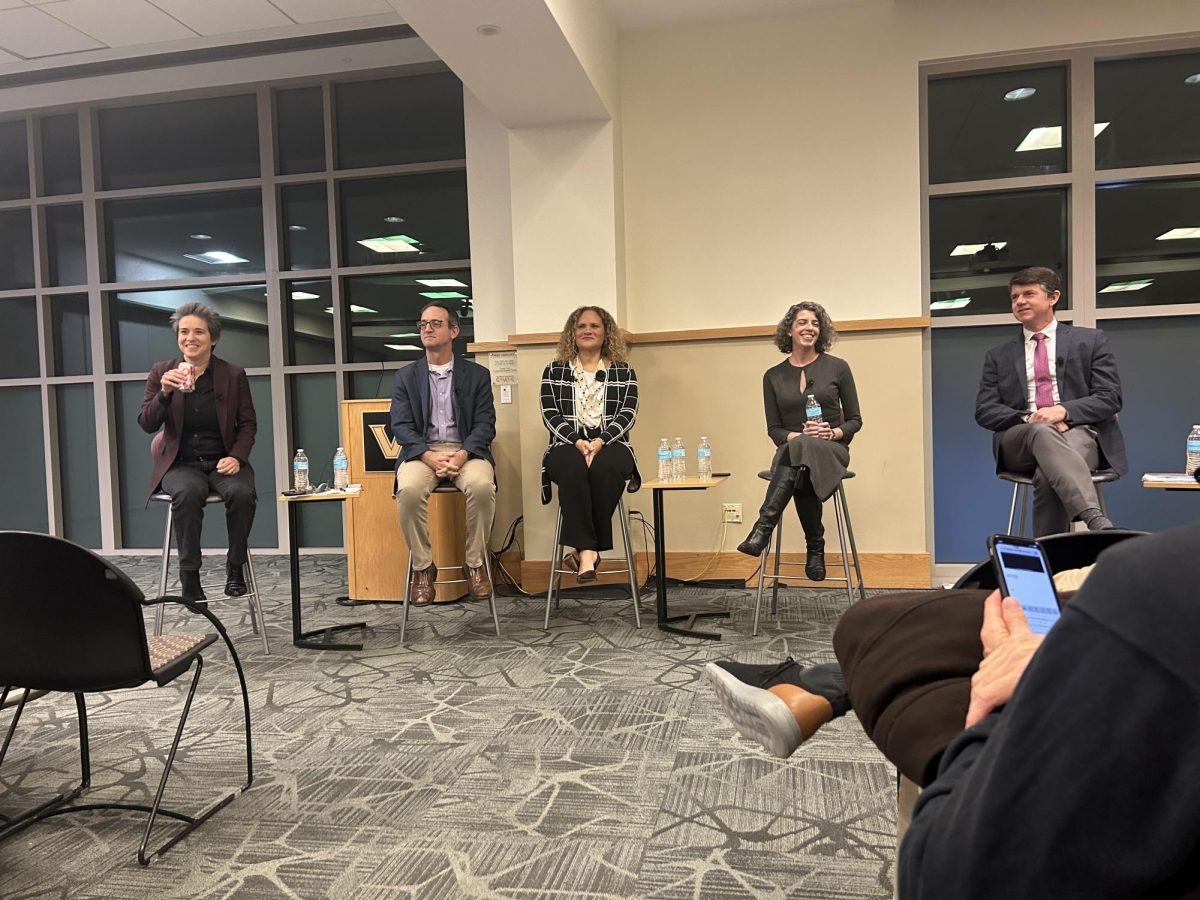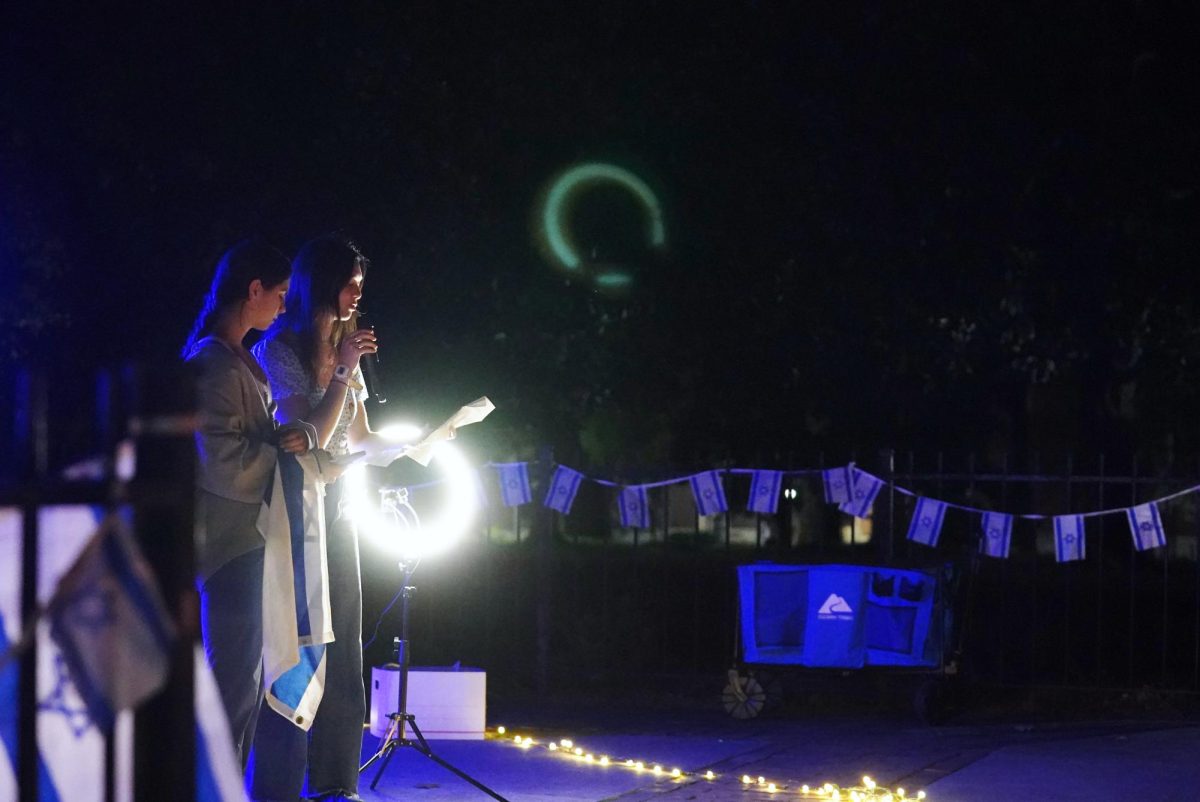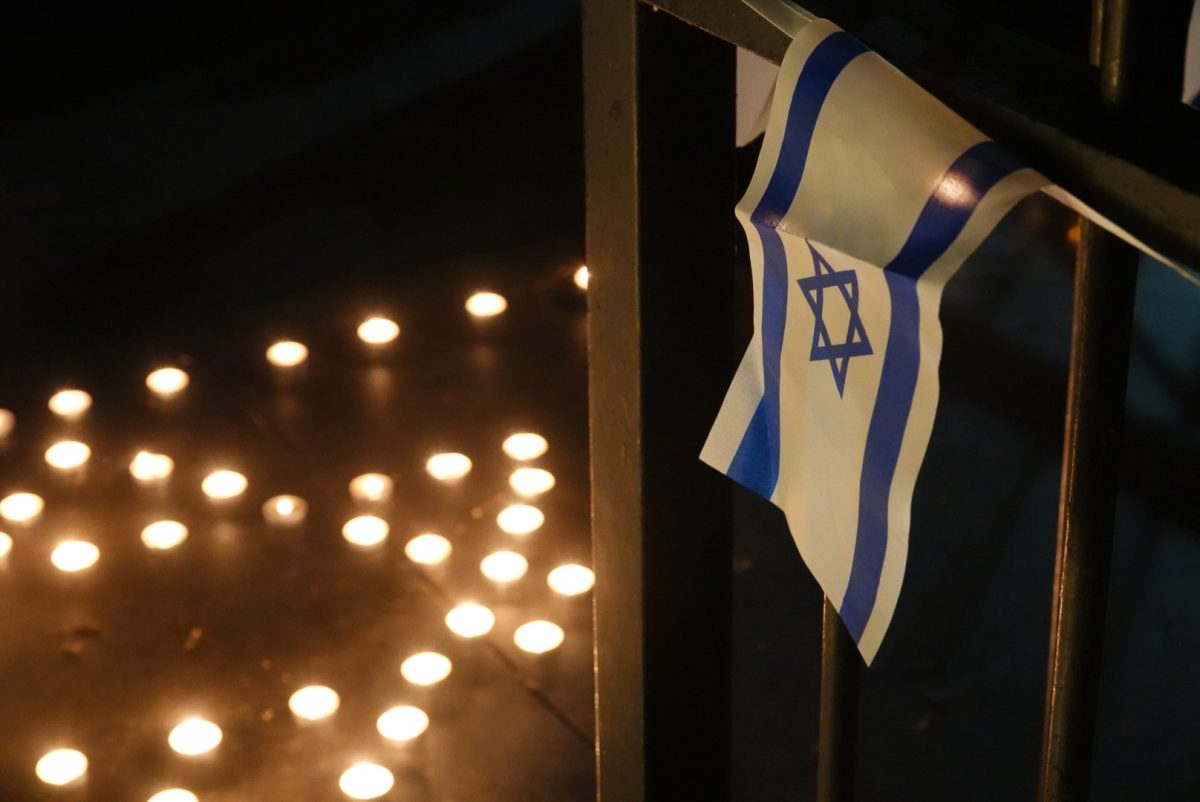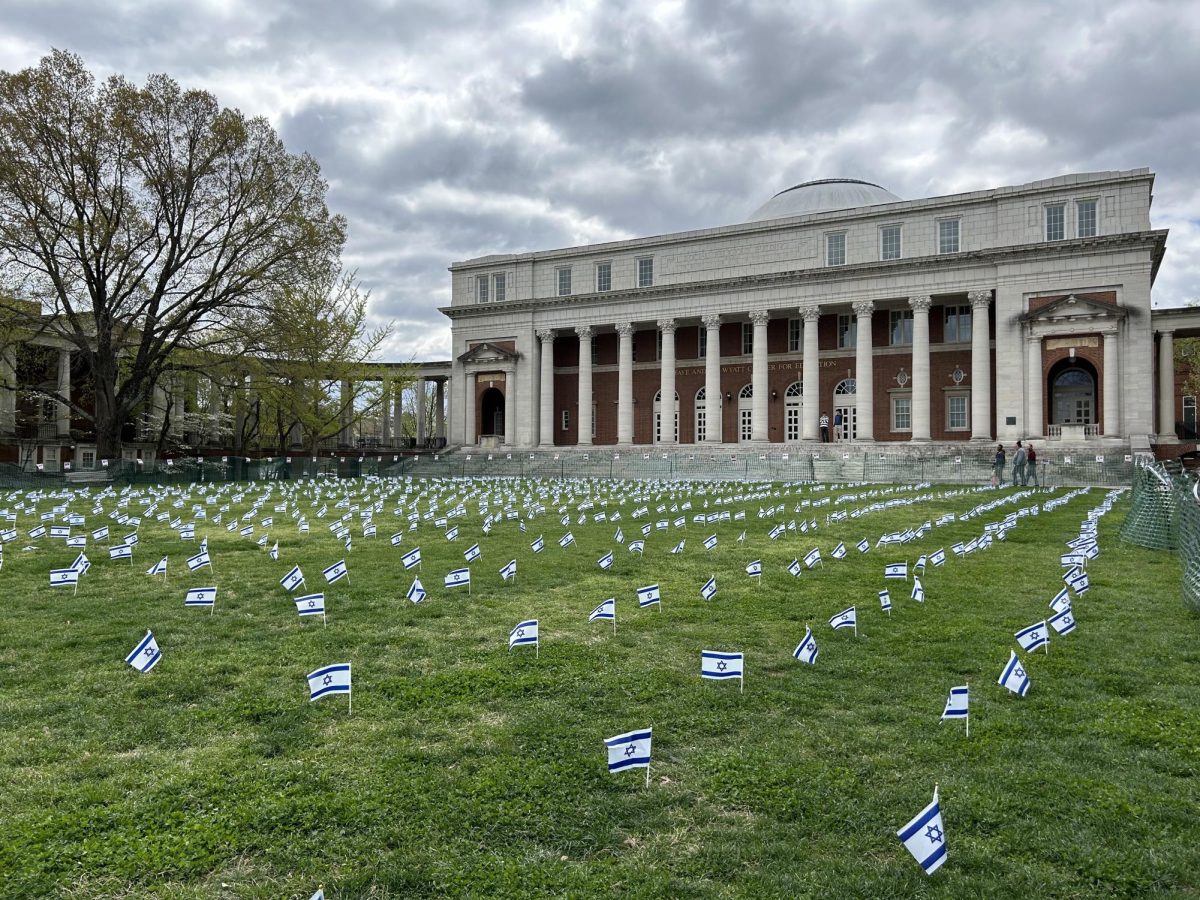At a Dialogue Vanderbilt event about the Middle East after the United States presidential election, history professor Thomas Schwartz interviewed Dan Senor about his take on Middle East conflicts and where he sees them going under the Trump administration.
Senor is recognized as an expert in international politics and on the U.S.’ relations with Israel. He is a co-author of the book “The Genius of Israel,” host of the podcast “Call Me Back” and previous senior advisor and chief spokesman to the Coalition in Iraq under the administration of former President George W. Bush.
Senor began by predicting the shifts to come following the election of former President Donald Trump. He emphasized how the conflict in Israel and Palestine is viewed as a group of collective wars happening in the world right now rather than an isolated battle.
“The big change between the Biden administration and the incoming Trump administration, as it relates to the Middle East, is that neither the Trump administration nor, increasingly, the government of Israel and the Israeli public view the Israel-Palestinian conflict and the Israel-Gaza war in isolation,” Senor said. “It’s one front in a seven-front war, and the head of the octopus, as Naftali Bennett called it, is Iran.”
Professor Schwartz then asked a follow-up question on Iran, prompting Senor’s discussion on the prospect of Iran taking strides toward developing a nuclear bomb following Trump’s election.
“The only thing [Iran] has, the ultimate insurance policy, is having their nuclear weapon capability. And I know many in the Israeli security establishment are deeply worried,” Senor said. “The estimate is when Iran decides to go from [nuclear] breakout to nuclear capability. When Iran decides to do that, the U.S. intelligence estimates range anywhere from two to six weeks. They could really have some capability [in] as soon as two weeks.”
Senor said he believes the problem with Iran is an issue that does not just concern Israel but also the U.S. and the West. He said global security is at risk as Iran continues to spread its influence, especially with the growing connection between Russia and Iran.
“With [Iran’s] growing network of influence — from the Houthis in Yemen to its support for Russia’s war in Ukraine — Iran poses a direct threat to global security, and the U.S. cannot afford to view it as a distant issue,” Senor said.
More recently, the Hamas military suffered a loss of leadership, and Senor went on to express how he thinks this has affected the war.
“The major war-fighting phase in Gaza is over for Israel. The leadership of Hamas is wiped out. Hamas was organized as a real military — it is organized like a light infantry army of a sovereign nation,” Senor said. “There are still Hamas fighters that have survived the war, but they’re not part of an organized military entity.”
To put into perspective the suffering of Israel, Senor describes the impact the Oct. 7 attack had on Israel as proportionally equivalent to “33 [Sept. 11s] and 5,000 hostages” taken from the U.S.
In light of related college campus protests across the U.S., Senor compared the recent protests to those relating to the Vietnam War.
“I don’t have much sympathy for the recent protests, especially because those involved don’t have the same personal stake in the outcome like the college students did during the Vietnam War,” Senor said. “They’re not being called up to fight or facing the same risks.”
According to Senor, a lot of the media coverage of the Middle East conflict has been biased, seemingly taking a stand against Israel.
“When the media is critical or zeroes in on something Israel does, I ask this question of journalists all the time. I said, ‘If another country did that — in fact, plenty of governments have — are you focused on those governments too?’ Because it seems that the only one that winds up the object obsession of the media is Israel,” Senor said.
Sophomore Yotam Peer — a member of the Dialogue Vanderbilt student advisory board — shared what he took away from the event.
“I appreciated [Senor’s] insights on Hamas being a fighter group that is much more than terrorists,” Peer said. “As far as the double standards of the media, I don’t know if I agreed with his claim that the global criticism toward Israel is entirely antisemitic, but I appreciated hearing the argument for the first time.”

